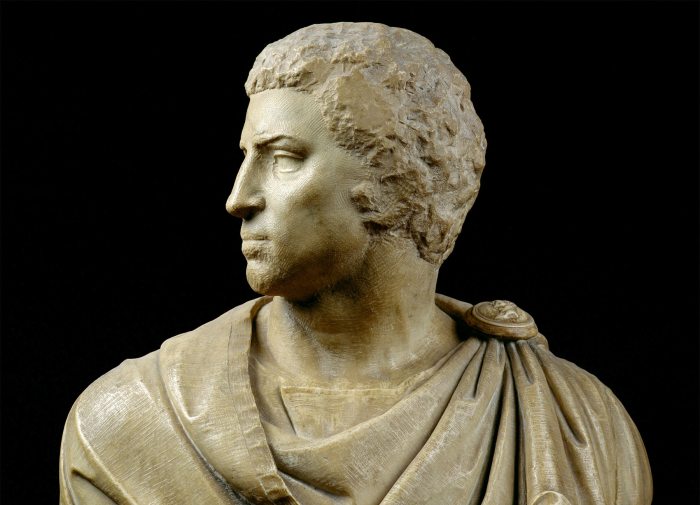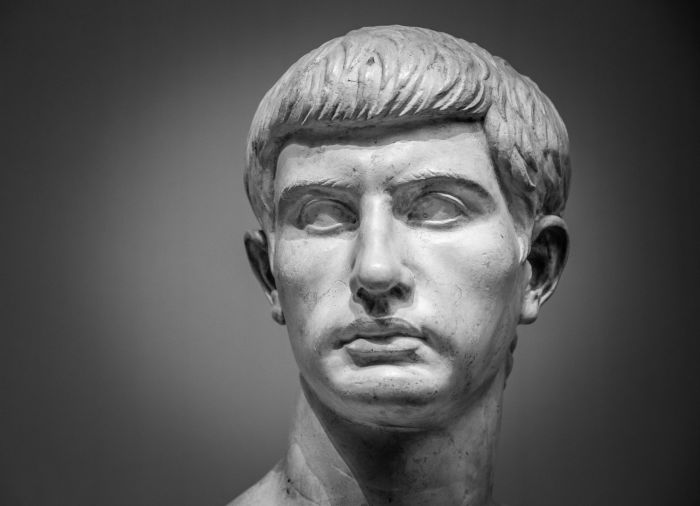Foil to Mark Antony in Julius Caesar takes center stage in this in-depth analysis, where we delve into the intricacies of the characters that counterbalance Antony’s presence. This exploration promises to shed light on the complexities of Shakespeare’s literary masterpiece, offering a fresh perspective on the dynamics that shape the play’s narrative.
Throughout this discourse, we will examine the motivations, strategies, and rhetorical prowess of Brutus and Cassius, unraveling their attempts to undermine Antony’s influence. We will dissect Antony’s speeches, analyzing his use of language and emotion to sway the crowd. Furthermore, we will explore the role of public opinion and the power of imagery in shaping the perceptions of these characters.
Brutus’s Role
Brutus, a prominent figure in Julius Caesar, played a pivotal role in opposing Mark Antony’s political ambitions and ultimately contributing to his downfall. Brutus’s motivations for opposing Antony stemmed from his belief that Antony posed a threat to the Roman Republic and its democratic ideals.
To counter Antony’s influence, Brutus employed various methods. He delivered powerful speeches to sway public opinion against Antony, highlighting his manipulative tactics and aspirations for tyranny. Additionally, Brutus formed alliances with other senators who shared his concerns about Antony’s ambitions.
Methods to Counter Antony’s Influence
- Delivered persuasive speeches to sway public opinion
- Formed alliances with like-minded senators
- Attempted to isolate Antony politically
Brutus’s actions significantly contributed to Antony’s downfall. His speeches effectively eroded Antony’s credibility and support among the Roman populace. Furthermore, Brutus’s alliances with other senators helped to isolate Antony politically, limiting his ability to gain influence.
Cassius’s Intrigues

Cassius, a cunning and ambitious Roman senator, played a crucial role in undermining Antony’s position and turning the tide against him. Through a series of manipulative strategies and shrewd tactics, Cassius sought to weaken Antony’s influence, isolate him politically, and ultimately pave the way for his own rise to power.
Sowing Discord and Rumors
- Cassius spread rumors and planted seeds of doubt about Antony’s intentions, painting him as a dangerous and ambitious man who sought to usurp power.
- He skillfully exploited Antony’s lavish lifestyle and close ties to Cleopatra, portraying him as a threat to Roman values and traditions.
Manipulating Brutus
- Cassius recognized Brutus’s idealism and moral integrity and played upon his sense of honor to sway him against Antony.
- He appealed to Brutus’s patriotism, arguing that Antony’s ambition threatened the republic and the ideals for which they had fought.
Isolating Antony Politically
- Cassius forged alliances with other senators and factions who shared his concerns about Antony’s growing influence.
- He used his oratory skills to rally support against Antony, painting him as a traitor and a threat to the stability of Rome.
Impact on Antony’s Position
Cassius’s machinations had a significant impact on Antony’s position. The rumors and suspicions spread by Cassius eroded Antony’s credibility and support among the Roman people. Brutus’s defection to the opposition weakened Antony’s political base and forced him to reconsider his ambitions.
Antony’s isolation and loss of support ultimately led to his downfall. The combined efforts of Cassius and other conspirators culminated in Antony’s defeat at the Battle of Philippi, where he was forced to flee and later commit suicide.
Antony’s Rhetoric
Antony’s speeches are masterclasses in persuasion, effectively countering his opponents and swaying the crowd to his side. He employs a range of rhetorical devices to achieve this, including:
Emotional Appeals
Antony skillfully manipulates the crowd’s emotions, evoking pity, anger, and fear. He portrays Caesar as a victim and a martyr, arousing sympathy and indignation. He also uses repetition and rhetorical questions to amplify the emotional impact of his words.
Logical Arguments
Despite the emotional appeals, Antony also incorporates logical arguments into his speeches. He presents evidence and reasons to support his claims, such as Caesar’s will and the testimonies of witnesses. This balance of emotional and rational appeals enhances the persuasiveness of his rhetoric.
Use of Imagery and Symbolism
Antony employs vivid imagery and symbolism to create a lasting impression on the crowd. He compares Caesar’s assassination to a “beast with many heads” and portrays Brutus and Cassius as “butchers” who have “hacked at Caesar’s body.” These images evoke powerful emotions and reinforce his message.
Appeals to the Crowd’s Values
Antony taps into the crowd’s sense of honor, patriotism, and loyalty. He reminds them of Caesar’s accomplishments and his sacrifices for Rome. By appealing to their shared values, he gains their support and undermines his opponents.
Effectiveness of Antony’s Rhetoric, Foil to mark antony in julius caesar
Antony’s rhetoric proves highly effective in countering his opponents. He successfully sways the crowd to his side, leading to the downfall of Brutus and Cassius. His speeches demonstrate the power of persuasive language and the importance of understanding the audience’s emotional and logical motivations.
Public Opinion
Public opinion plays a pivotal role in the conflict between Antony and his rivals. Brutus and Cassius recognize the importance of shaping public perception in their favor. They attempt to portray Antony as a dangerous and ambitious individual who poses a threat to the republic.
They emphasize his close ties to Caesar and his role in the assassination plot.
Antony’s Funeral Oration
Antony’s funeral oration proves to be a masterstroke in swaying public opinion. In a powerful and emotionally charged speech, he appeals to the emotions of the Roman citizens. He reminds them of Caesar’s accomplishments and his generosity towards the people.
He also exposes the conspirators’ motives, portraying them as self-serving and power-hungry. Antony’s oration successfully turns public sentiment against Brutus and Cassius, paving the way for their eventual downfall.
The Power of Imagery

Shakespeare employs vivid imagery to portray Antony as a charismatic and influential figure. This imagery contributes significantly to his characterization, shaping perceptions of his ambition, cunning, and emotional appeal.
Animalistic Imagery
Antony is often associated with animals, particularly predators, suggesting his strength, cunning, and dominance. In Act I, Scene IV, Cassius describes Antony as a “beast that wants discourse of reason,” highlighting his impulsive and dangerous nature. Similarly, in Act II, Scene I, Brutus warns of Antony’s “serpent’s eye,” implying his deceptiveness and potential for betrayal.
Dramatic Structure

Antony plays a pivotal role in the play’s structure, serving as a foil to Brutus and driving the plot forward through his actions and speeches. His strategic funeral oration incites the Roman populace against the conspirators, leading to their downfall.
Antony’s death in the final act symbolizes the end of the conflict and the restoration of order.
Antony’s Actions and Speeches
- Antony’s funeral oration for Caesar manipulates the emotions of the crowd, turning them against the conspirators.
- His alliance with Octavius and Lepidus forms the Second Triumvirate, which defeats Brutus and Cassius.
- Antony’s pursuit of Cleopatra leads to his downfall and the play’s resolution.
Antony’s Death
Antony’s death marks the end of the play’s conflict and the restoration of order. His defeat by Octavius signifies the triumph of reason and stability over chaos and ambition. Antony’s death also foreshadows the rise of Octavius as the new emperor of Rome.
FAQ: Foil To Mark Antony In Julius Caesar
Who are the primary foil characters to Mark Antony in Julius Caesar?
Brutus and Cassius serve as the primary foil characters to Mark Antony in Julius Caesar.
How does Brutus attempt to counter Antony’s influence?
Brutus employs rational arguments, appeals to the crowd’s sense of justice, and attempts to discredit Antony’s motives.
What are the key elements of Antony’s speeches?
Antony’s speeches are characterized by their use of pathos, vivid imagery, and rhetorical devices such as repetition and parallelism.